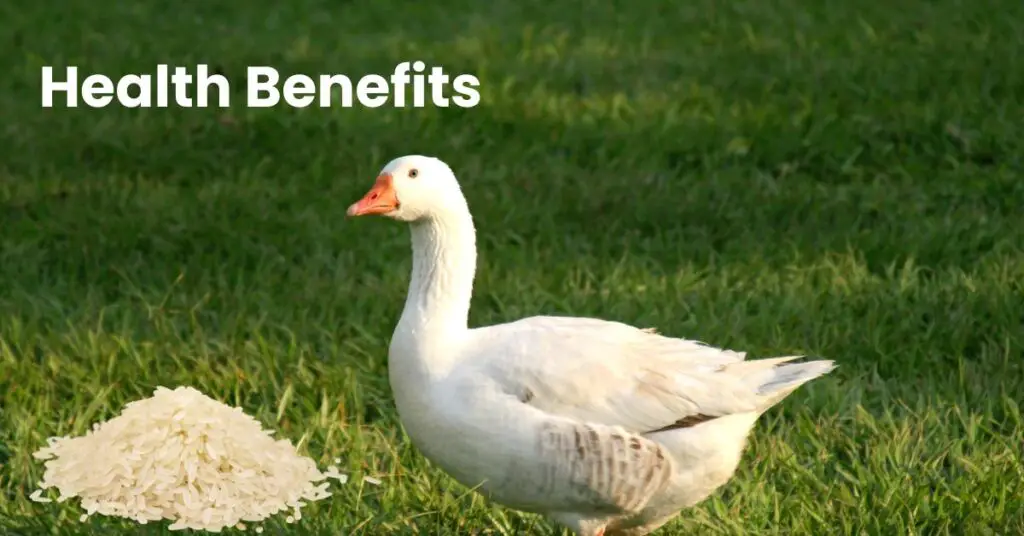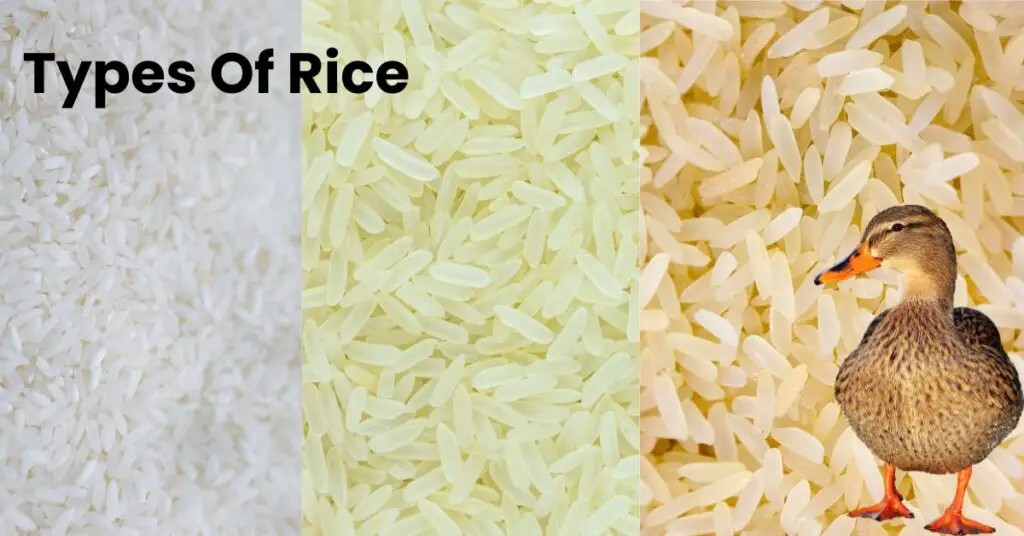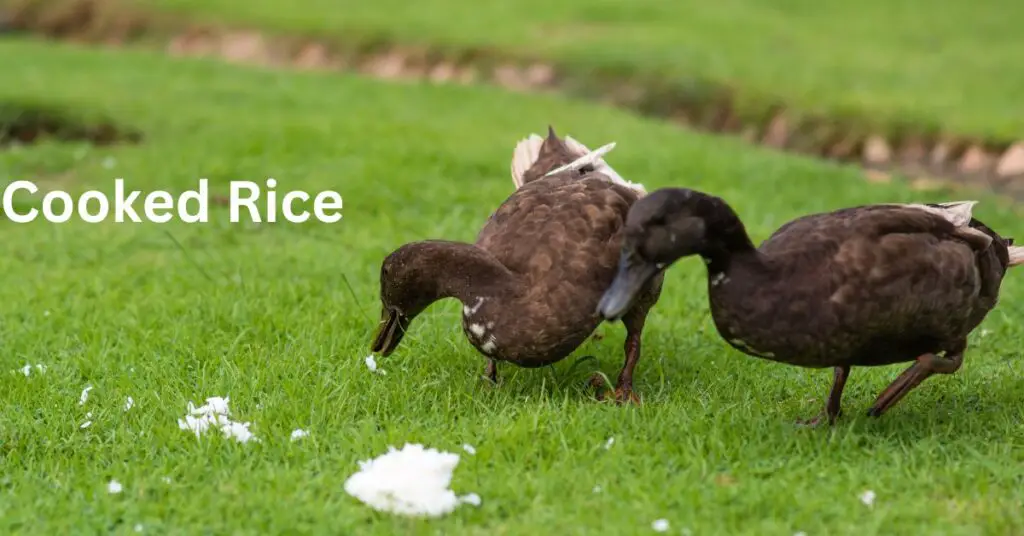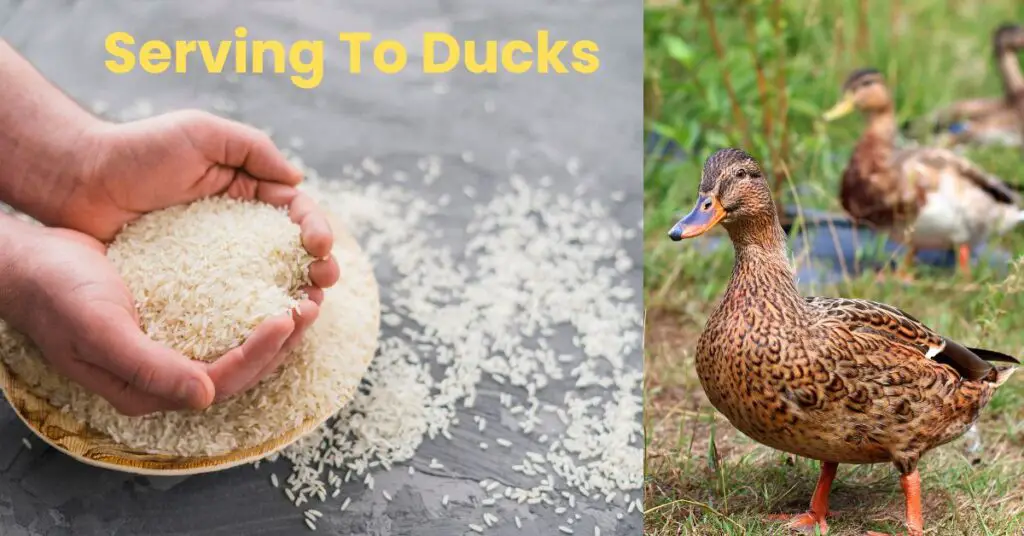“Rice” is a food that people love to consume. In different places of the world, rice is grown. You may get it at any market or retailer for a meager price. I always remember to purchase rice when I go grocery shopping. I enjoy rice immensely. The actual query, though, is whether my ducks can consume the rice.
Are ducks able to consume raw rice? Does giving uncooked rice to ducks have any health benefits or drawbacks?
You don’t need to worry about these inquiries because we will address them in the questions that are related to this topic. However, only leave this post after reading it in its entirety.
Table of Contents
Are hens able to consume rice?
Without a doubt, yeah! No problems exist for the ducks in eating the rice. It doesn’t matter if the rice is cooked; ducks can safely consume it. A common misconception is that feeding ducks rice is hazardous for them. For your ducks, rice has several advantages.
Can ducks eat uncooked rice?
Uncooked or raw rice is edible to ducks. The ducks may eat this treat without any problems. The uncooked rice contains essential nutrients, vitamins, and antioxidants to help your ducks stay healthy. However, a vast amount of raw rice is unhealthy for ducks and poses health risks, so keep it from your pals.
6 Potential health benefits of feeding uncooked rice to ducks

Uncooked rice contains a variety of healthy nutrients that provide help to your birds’ health.
Uncooked rice contains niacin.
The rice contains vitamin B3, also called niacin. It is a very crucial nutrient that is present in rice. Niacin is a very healthy vitamin for ducks because they also require a decent amount of niacin to perform their body functions. The niacin content in rice boosts the parts of the digestive and nervous systems.
Niacin deficiency can cause various health problems in ducks, including feathering issues and metabolic disorders. As a result, supplement your birds’ diet with white rice in a moderate amount to compensate for the lack of niacin in their bodies.
The uncooked rice enhances egg production.
Selenium is a vital mineral found in rice that aids duck egg production. The shortage of selenium in the ducks’ diet may cause poor egg production and development. The ducks are omnivorous creatures, so they try to attain this mineral through the plants. However, they will need more of these essential nutrients from plants.
Hence, providing this mineral through rice or other foods that contain a good quantity of selenium for your birds is best for their healthy egg production.
Uncooked rice is beneficial to the digestive system.
Uncooked rice contains a considerable amount of thiamin, also called vitamin B1. The shortage of this vitamin in the ducks’ bodies may cause digestive problems. Your duck’s digestive system does not perform its activities accurately, making your bird uncomfortable.
In addition, the deficiency of this vital thiamin also has adverse effects on the other parts of the duck’s body, such as muscle weakness, heart issues, and nervous problems. Your duck may also experience the pain of losing its appetite due to the shortage of vitamin B1. To shield your ducks from the severe health dangers mentioned above, feed them an adequate and moderate amount of rice.
Uncooked rice improves bone formation.
The rice contains a lot of magnesium. This helpful nutrient helps to overcome the shortage of magnesium in ducks’ bodies. According to some studies, a lack of magnesium in the birds’ bodies causes poor and weak bone formation.
Hence, provide rice to the fowl companions to meet the required amount of magnesium, which is essential for their development of solid bone formation. In addition, magnesium is also very adequate for the strong eggshells of the ducks.
Uncooked rice improves brain functions.
The vitamin B6 content in the rice is very good for the ducks. The rice is loaded with vitamin B6, which is suitable for the nervous system, and regulates the brain’s functions. The deficiency of this vitamin causes poor brain function. Your ducks’ brain functions may not be able to work actively, and ducks also have issues with regulating their body clock.
Hence, provide vitamin B6 to your waterfowl to improve their brain functions and active development. In addition, it is also beneficial for the breakdown of amino acids in the duck’s body.
Uncooked rice is an excellent source of energy.
Brown and white rice are high in carbohydrates, making them an excellent energy source. Hence, providing rice to ducks means giving them a lot of energy. The ducks also require a good amount of power in the cooler months, so rice is the best source of energy to supply the fowl buddies.
Can ducks eat all the types of rice?

The ducks can safely consume all rice varieties, but brown rice is said to have many nutritional advantages over the other rice varieties. Some of the more popular types of rice are brown rice, white rice, wild rice, jasmine rice, and basmati rice.
Are ducks able to consume cooked rice?

“Yes!” The ducks can eat cooked rice. Cooked rice is a delectable treat for your ducks. They will love to eat it. Because after cooking, the rice becomes very soft, and the ducks can easily consume it. However, cooked rice releases many healthy nutrients during the cooking process, so it is best to serve the uncooked rice to the birds or ducks.
It is also suggested that you keep the seasoned and fried rice away from your ducks because they are unhealthy.
How can I feed uncooked rice to my ducks?

Like chickens, the ducks are also very fond of eating uncooked rice. Here are some ways that you need to follow when you are thinking of feeding uncooked rice to your ducks.
Select the variety of rice:
Before giving uncooked rice to the ducks, the first step is to select the best variety of rice that is very good for them. There are various types of rice, but brown and white rice are the best for your ducks because they are high in essential, healthy nutrients.
Clean the rice:
Clean the rice before giving it to your ducks. Because commercially prepared rice contains many dangerous chemicals which are bad for the ducks. So, wash or rinse them perfectly.
Spread the uncooked rice in the garden:
You can spread it all over the uncooked rice in the garden and the other places where your ducks play. They will love to consume uncooked rice.
Soaked the uncooked rice:
You can also serve soaked, uncooked rice. Take a small bowl and put a handful of rice in it. You can leave them to soak for about an hour. After the mentioned time, the rice becomes very soft. Now, you can feed the soaked uncooked rice to your duck flock.
Give the raw rice in moderation:
On the other hand, uncooked rice is a nutritious and healthy snack for your fowl ducks, but feeding a lot of uncooked rice is bad for them. Raw rice only provides nutrients your ducks need for their growth and development. Hence, only add cooked rice to the daily feed of ducks. Instead, you can use it as an occasional treat for your flock.
Last words
Consequently, can ducks eat uncooked rice? Yes, they can eat raw rice and adore this snack. Uncooked rice offers your ducks several nutritional benefits, as you have read above. However, the crucial point is that one should only use up to 10% of their diet as a treat on occasion.
FAQs:-
How often should I offer my ducks uncooked rice?
The uncooked rice can be given to your ducks on occasion as a treat. It would be best if you only fed uncooked rice to your ducks and fowl twice a week, per the recommendations.
How much-uncooked rice can my ducks eat without becoming sick?
Only goodies make up 10% of your ducks’ diet. Thus, the daily pellet feed accounts for the remaining 90%. As a result, they never consume more than 10% of their calories from treats. Additionally, because the ducks also require other seeds and fruits as a reward, they never include raw rice in their 10% daily treat.
Therefore, the ideal way to feed your ducks is occasionally and in small quantities of uncooked rice.
What happens if the ducks ingest an excessive amount of uncooked rice?
The ducks will experience numerous health problems if they consume a lot of uncooked rice. Your ducks are experiencing gastrointestinal discomfort. The large intake of raw rice is also harmful to the digestive system.
Additionally, if your duck consumes this treat in large quantities, it could develop food poisoning and experience vomiting and diarrhea.




